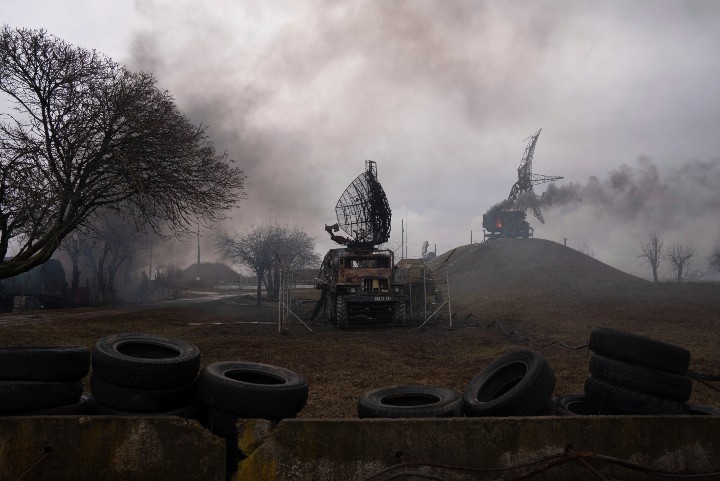
Russia’s invasion of Ukraine has sparked a severe sell-off in financial markets. This conflict in Eastern Europe may seem distant for UK investors, but many companies with Russian and Ukrainian operations are listed in London and incorporated in the UK. Some of these may fall under the scope of sanctions threatened by the West in retaliation for Russian aggression. While the FTSE 100 has fallen nearly 4%, some individual stocks in the index with direct exposure to the two countries have seen some significant falls on Thursday.
FTSE 100 miner Evraz (EVR) is one of the companies in the eye of the storm today. The company is a London-based steel, mining and vanadium business with significant operations in Russian and Ukraine. Chelsea Football Club owner Roman Abramovich has a large stake in Evraz and while the businessman has not yet faced sanctions, UK Prime Minister Boris Johnson mistakenly said in Parliament on Tuesday that this was already the case. Three other Russian business executives were named this week as falling under the current sanctions regime (Gennady Timchenko, and Boris and Igor Rotenberg). Evraz shares are off around 30% today and nearly 70% so far this year.
The issue of sanctions is likely to intensify in the coming weeks and months as they are designed to target sectors of “strategic significance” to Russia, which includes mining and commodity producers and banks. Initially the UK sanctioned three individuals and five companies, but the Prime Minister announced that this list is being extended to five more individuals and over 100 companies.
While gold has risen in price as investors seek out safe haven assets, FTSE 250 gold mining company Petropavlosk (POG) has been caught up in the wave of selling, losing 27% today. Fellow precious metal miner Polymetal, is also a casualty of the sell-off, shedding nearly 38% of its value on Thursday.
Russ Mould, AJ Bell investment director, explains the disconnect between the commodity and share prices: “Under normal circumstances, all gold and silver miners would move up by the same or a greater amount than the commodity price. The postcodes of Polymetal’s assets meant it did not hitch a ride with the metal. In fact, it slumped due to its primary focus on Russia.”
Also in the FTSE 250, it’s the same story at Swiss-based commodity trading and mining company Ferrexpo (FXPO). The company operates three iron ore mines in central Ukraine, and is one of the biggest exporters of iron ore pellets in the world.
On Thursday the company said mining and processing facilities in central Ukraine remain operational, but added that the Ukrainian government has suspended rail transportation.
Georgian Banks Caught Up
Away from the miners, Georgian bank TBC (TBCG) is one of the biggest fallers in the FTSE 250 today as investors fret over the implications of neighbouring countries. The country, in the Caucauses, was invaded by Russia in 2008 and security experts say that Putin’s latest Ukrainian manoeuvres are similar to those seen in Georgia.
Bank of Georgia (BGEO) also saw falls today, despite producing a strong set of financial results yesterday.
JP Morgan Russian Securities (JRS) is a “pure play” investment trust focused on Russia and listed in London and its shares are off by a similar magnitude to the miners on Thursday. It's off 20% at the close of play. The trust has a Morningstar Analyst Rating of Silver and was one of the best performers among closed-end last year as the rise in the oil price benefited Russian stocks like Gazprom, Lukoil and Rosneft. These companies have primary listings in Moscow but also have secondary listings in London.
Aluminium producer EN+ (ENPL) is headquartered in Moscow and is listed there, as well as being listed in London after a float in 2017. It's a public joint stock company (PJSC), like many other listed stocks in the former Soviet Union like Lukoil. Its two main divisions are aluminium production and energy generation.The company was brought under the 2018 sanctions regime imposed by the US because of its links to oil tycoon Oleg Deripaska. These sanctions on EN+ were lifted after Deripaska's shareholding and voting interest were reduced under the guidance of former UK energy minister Greg Barker, who is chairman of EN+. But Deripaska remains on the US Treasury’s Office of Foreign Assets Control list but he is taking legal action to remove these sanctions.






























